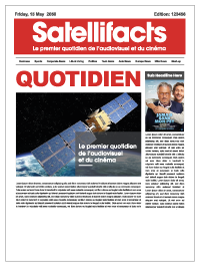
The United States took a significant step on Tuesday, March 7, towards a ban on TikTok (ByteDance) via a bill supported by the White House, in a context of growing distrust of Westerners towards the Chinese social network. US National Security Advisor Jake Sullivan said in a statement that he "applauded" a bill tabled the same day that would, among other things, ban apps such as TikTok.
Backed by a Democratic senator and a Republican senator, the bill, called the “Restrict Act” gives the Minister of Commerce new powers to ban this application. A competing bill, introduced in the House of Representatives, also passed a key milestone in Congress last week.
Banning the application would amount to "muzzling the freedom of expression" of millions of Americans, protests TikTok, which claims more than a hundred million users in the United States. The app's CEO, Shou Zi Chew, will be heard by the US Congress at the end of the month.
At the end of February, the White House had already ordered federal institutions to ensure that TikTok disappears from their smartphones within 30 days, pursuant to an act ratified in early January by Joe Biden. The European Commission and the Canadian government recently made similar decisions for their civil servants' smartphones, and the Danish parliament announced that it has asked MPs and staff to remove the app from their devices.
Parent company ByteDance is also under investigation by the Irish Privacy Authority, which is investigating whether the company breached EU data protection law (GDPR) in relation to privacy of children's personal data and data transfers to China.

